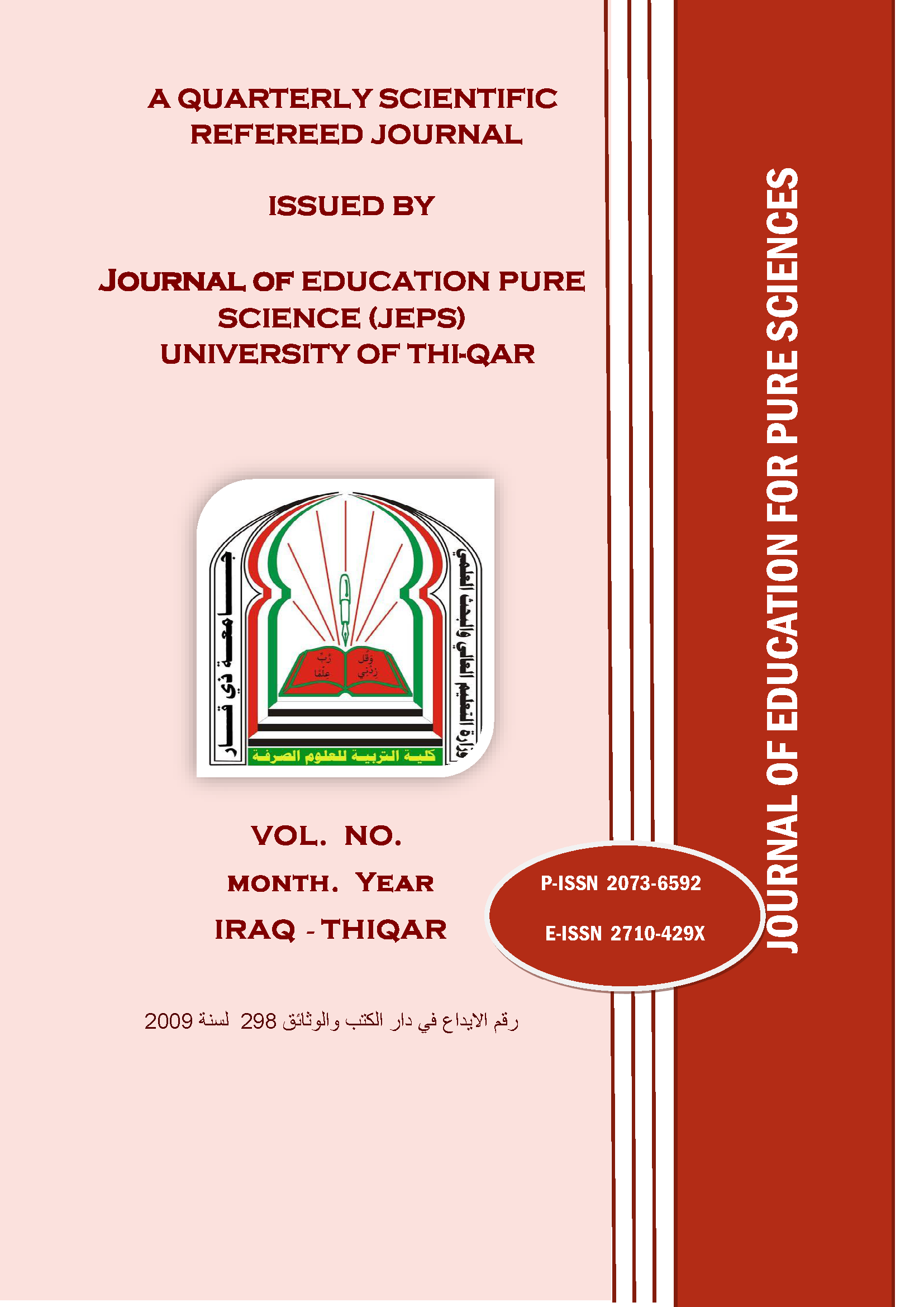Monitoring of heavy metals in some desert plants south of Basra province, Iraq
DOI:
https://doi.org/10.32792/jeps.v14i4.597Keywords:
Pollution, Heavy metals, Bioaccumulation, Desert plantsAbstract
This study examines heavy metal concentrations in desert flora from two locations in Basra Province, Iraq, offering essential insights into environmental pollution. Heavy metals were analyzed at various locations to assess variability. Cadmium displayed stable levels, whereas cobalt demonstrated considerable variations, signifying an irregular distribution. Manganese was abundant although markedly inconsistent. Nickel exhibited stability. Lead had stable amounts, but zinc displayed significant presence and change. These results guide environmental evaluations and management strategies. The variability among places and plant species underscores the impact of local variables and physiological characteristics. Erodium glaucophyllum, Diplotaxis harra, and Astragalus spinosa exhibited unique accumulation capacities. Soil properties varied, clarifying ecological processes. This study enhances the comprehension of heavy metal accumulation patterns in Iraqi desert vegetation, supporting efforts for conservation and contamination reduction.
Downloads
Published
Issue
Section
License
Copyright (c) 2024 Journal of Education for Pure Science- University of Thi-Qar

This work is licensed under a Creative Commons Attribution-NonCommercial-NoDerivatives 4.0 International License.
The Authors understand that, the copyright of the articles shall be assigned to Journal of education for Pure Science (JEPS), University of Thi-Qar as publisher of the journal.
Copyright encompasses exclusive rights to reproduce and deliver the article in all form and media, including reprints, photographs, microfilms and any other similar reproductions, as well as translations. The reproduction of any part of this journal, its storage in databases and its transmission by any form or media, such as electronic, electrostatic and mechanical copies, photocopies, recordings, magnetic media, etc. , will be allowed only with a written permission from Journal of education for Pure Science (JEPS), University of Thi-Qar.
Journal of education for Pure Science (JEPS), University of Thi-Qar, the Editors and the Advisory International Editorial Board make every effort to ensure that no wrong or misleading data, opinions or statements be published in the journal. In any way, the contents of the articles and advertisements published in the Journal of education for Pure Science (JEPS), University of Thi-Qar are sole and exclusive responsibility of their respective authors and advertisers.





